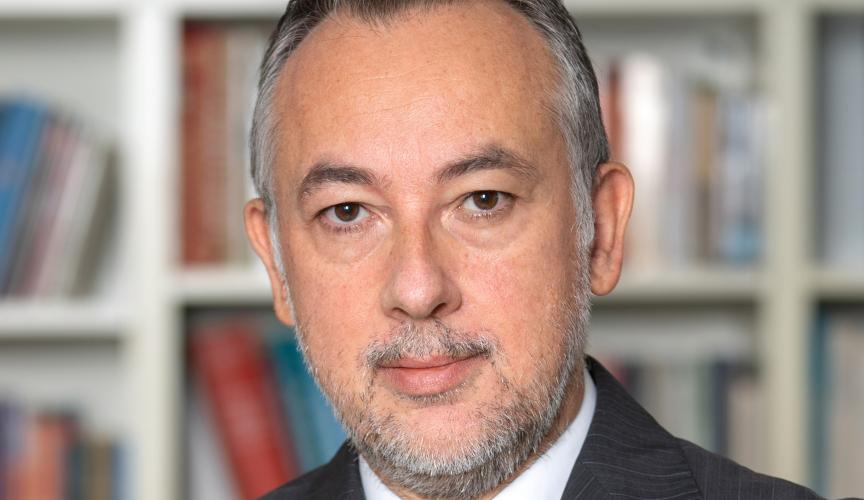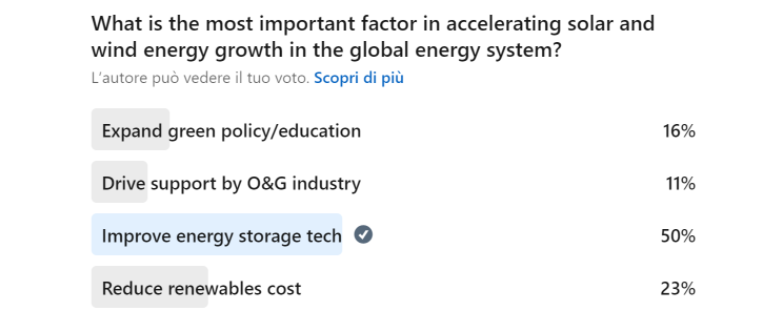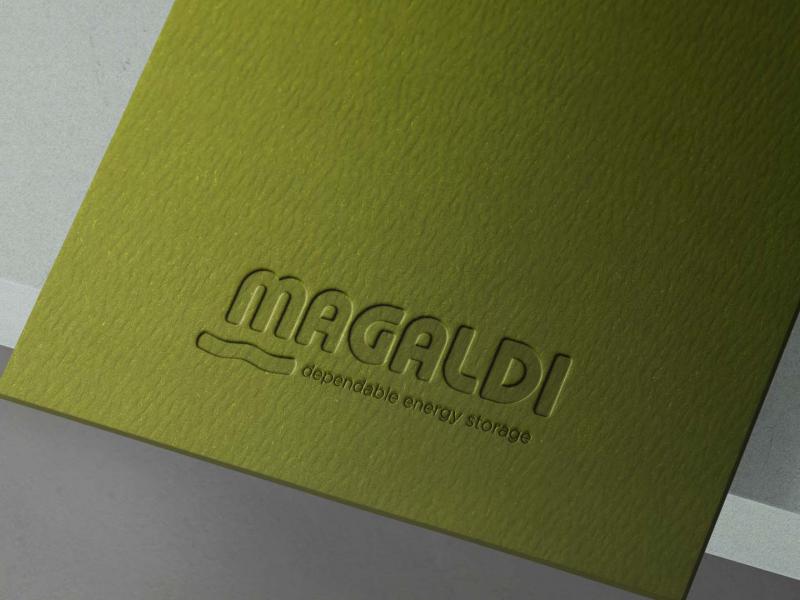
The technology based on the use of the fluidized sand bed is totally environmentally friendly in the whole area
The opening of Magaldi Green Energy Middle East in Dubai gives the company the opportunity to operate over the markets of the United Arab Emirates (UAE), Saudi Arabia, Oman, Qatar, Kuwait and other countries of the Gulf Cooperation Council (GCC), where we soon expect "a great Green revolution development".
In this long interview, the General Manager of Magaldi Green Energy Middle East, Massimiliano Masi, explains the reasons why the company is more and more oriented to internationalization and looks with particular interest to this vast area: "we believe that thermal energy storage can develop and become an integral part of major renewables projects in the Middle East, at the moment it is at an advanced prototype stage. In this context - continues Masi - "we at Magaldi would be very happy to give our technological and innovation contribution to the GDP of these countries".
In the United Arab Emirates, and in the GCC in particular, there are only a few prototypes of thermal storage, under which circumstances "our MGTES technology integrates sustainably with the environment, thanks to study and refinement that has lasted over 10 years". This is precisely why it can become "the standard for high-efficiency, long-life thermal storage" throughout the Middle East.
Masi then announces that the company will present this technology during Wetex in Dubai and that in the following months it will carry out a roadshow at the main energy and oil & gas companies to obtain feedback from potential customers, who "we would like to consider partners in an energy change of epochal dimensions and on a global scale".
1. In the United Arab Emirates (UAE) you are the General Manager of Magaldi Green Energy Middle East based in Dubai. What are the specific objectives in this country? Why the United Arab Emirates?
The opening of a Magaldi Group company in Dubai is a strategic move that allows the company to be a strong player in the markets of the United Arab Emirates, Saudi Arabia, Oman, Qatar, Kuwait and other countries of the Gulf Cooperation Council (GCC), giving voice to the needs of these markets.
In the UAE in particular, we believe that a great Green revolution will develop from the EXPO, strongly linked to the energy transformation of countries that traditionally use oil and gas, in favour of solar energy systems, specifically photovoltaic and Concentrated Solar Power (CSP). As the use of renewables in the energy mix increases, there will be a growing intermittency in the distribution of electricity and in the availability of energy in large industrial users.
Our MGTES product contributes to supplementing the actual production of renewables with long-term storage that is much greater than the time required by conventional lithium-ion batteries. We believe that large renewable energy projects in the UAE and the Middle East require our full attention in order to fully support the ongoing energy transition.
2. How developed is the renewable energy and storage market in the UAE? Is the electricity grid adequate? What are the future perspectives?
At present, only a marginal capacity of electrical MW is produced from renewable sources, as the projects studied in the UAE but also in Saudi Arabia (KSA) have been very large (utilities scale from 100 MW upwards), and therefore with longer timeframes given the complexity of the power installations.
This gave the opportunity to the big local developers such as ACWA Power, Masdar and DEWA to develop the technical, supply chain competencies and energy management skills required to manage a growing pipeline of large-scale projects. We now expect a strong acceleration of MW installed by 2030, to achieve a total of more than 50 to 60 GW in the two main markets of the UAE and KSA. We believe that thermal energy storage can develop and become an integral part of major projects in the Middle East.
3. Do you see any political differences between the Arab Emirates and Italy and more generally with other countries in the world?
The Arab Emirates are an extraordinary country where to live and work. The technological, industrial, financial and service infrastructures are of a high standard and here people live every day in a continuous search for innovation and excellence, never forgetting the right balance between work and private life. Life here takes place in an international context, which is able to bring together Western and Eastern economies.
A relationship of great harmony and attraction exists between Italy and the Arab Emirates, based on the fact that Italians have a great capacity for innovation and have always been able to offer products of the highest quality, which are recognised and valued here. At the same time, Italians can contribute to transfer their skills, ability to be flexible and solve complex technical problems to local companies so that they can grow together.
Undoubtedly in this historical moment, the United Arab Emirates and more generally the countries of the Gulf represent the most ideal places in the world where to do business and live, integrating different cultures.
4. Comparing different countries around the world, what are the political and institutional winning measures to help the development of the renewables sector and specifically the thermal storage sector? Is there only one way or does it depend on the specific features of the country?
In a recent study that was carried out when I was part of the Boston Consulting Group, it became clear that one of the key points to help the international development of renewables is the technology: we need to define winning energy storage solutions. Another key element is generally the cost, it must come down and should basically beat the cost of producing energy from gas.
For thermal storage, the key factors will be LCOS, i.e. the average revenue per unit of energy required to cover the construction and operating costs of a storage system, and round trip efficiency i.e. the level of efficiency between energy input and energy output. In the early years of energy transition it is important to have the help of dedicated incentives and in particular those supporting energy efficiency. This is a key factor in implementing the replacement of fossil fuel systems with fully renewable solutions.
In particular, it would be important for countries in the Middle East to have access to forms of incentives in order to locate production systems and to enable international companies to establish not only commercial but also manufacturing activities in a win-win logic. I am sure that in the energy policies of the UAE and KSA, all instruments to encourage the value creation in the entire value chain of renewables will be soon considered. We at Magaldi would be glad to give our technological and innovation contribution to the economic development of these countries.
Moreover, renewable technologies are not only the prerogative of Utilities, i.e. typically of the classical energy producers, but they are also becoming a strategic part of the large Oil & Gas players. This is because in addition to diversification strategies, the big majors such as Adnoc, Enoc, Saudi Aramco, and OQ operating in the UAE are convinced that renewable technologies will be key to competing in the new hydrogen, electric vehicle and clean petrochemical industries. Having cost-effective energy storage solutions available in this period of widespread energy revolutions is a key point for every industry.
5. Do new green systems in the UAE find support in society or is there any opposition, as has sometimes happened in Italy?
This is actually a very strong contradiction in Italy, the NIPEC (national renewable long-term plan) goals for the distribution of renewable energy will never be achieved if the process for the necessary authorisations to build or modify new projects is not modernised and de-bureaucratized.
In the United Arab Emirates and other GCC countries in general, very large installations are built under the direction of the local energy incumbents and with the efficient and prior authorisation of the Regulatory Authorities. Certainly, the geographical location and the availability of land make it easier to set up industrial plants of this type. However, there is no Nimby culture because people are confident that any technology will meet the highest standards of quality and safety.
These factors are therefore further elements that will lead the GCC area to fill the renewables gap with areas of the world that started out around 20 years ago and probably continue to hold the world records in terms of efficiency and cost performance achieved in recent years.
6. In the UAE, what are the main technologies in the thermal storage sector?
In the UAE and GCC there are only a few thermal storage prototypes, mostly built in Abu Dhabi by Masdar. We believe that MGTES technology, as it has been designed and perfected over the last 10 years and is based on the use of a fluidized sand bed, has a great fit with the Middle East environment and can represent not only a prototype element but become the standard for high efficiency and sustainable thermal storage.
We will be launching this technology at Wetex in Dubai and will be carrying out a roadshow at major energy and oil and gas companies in the following months to collect feedback from potential customers, many of whom we would like to see as partners in an energy change of epochal dimensions and on a global scale.




